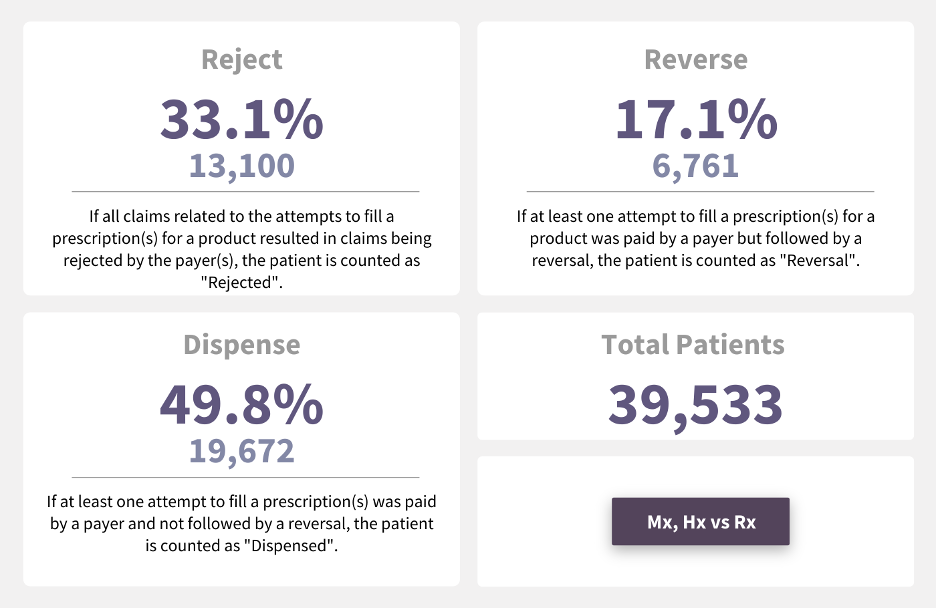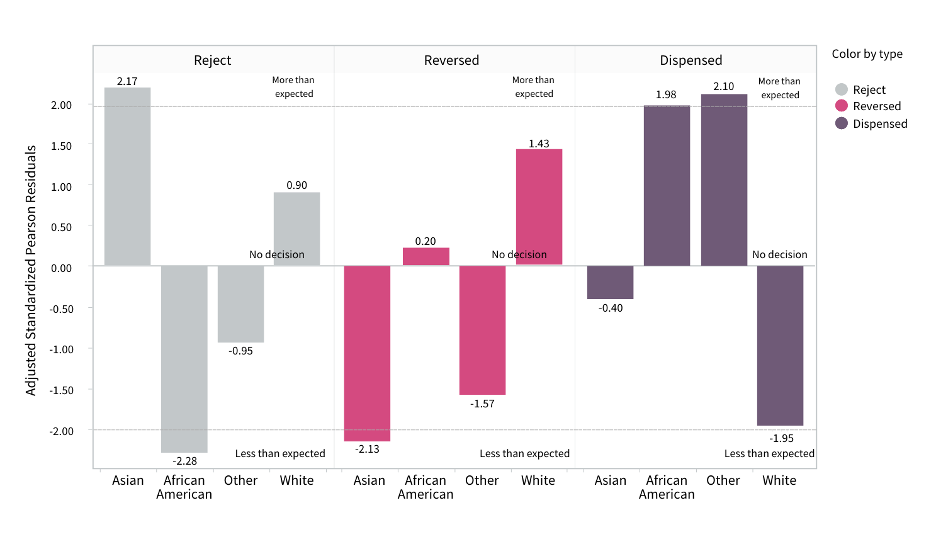In recognition of National Psoriasis Awareness Month, PurpleLab™ reviewed our data on this medical condition. According to the Mayo Clinic, Psoriasis is a skin disease that causes a rash with itchy, scaly patches, most commonly on the knees, elbows, trunk and scalp. Psoriasis is a common, long-term (chronic) disease with no cure. It can be painful, interfere with sleep and make it hard to concentrate.
We looked at three of the leading medications belonging to the Interleukin antagonists group used to treat this condition that specifically treat psoriasis: secukinumab, risankizumab, and ixekizumab.
When we look at these medications in a traditional manner, we see that it is dispensed 50% of the time, filled but not picked up 17% of the time, and rejected 33% of the time. When we apply the SDOH filters, we gain further insights into the data, seeing that 88% of the rejections are in the white population, 7% African American, and 4% are Asian American. The dispensed rates are 88%, 8%, and 3%, respectively. It is interesting to note that Asian Americans being prescribed these drugs have higher rates of rejection compared to the other groups. It is difficult to discern from the claims alone whether this is due to formulary restrictions or other factors.
As we peel back the layers and apply SDOH information, the standard assumptions regarding who might or might not have their prescriptions filled or rejected take on new perspectives. By utilizing SDOH information, we can start to address some of the inequities and disparities in medication prescribing patterns by addressing the underlying reasons for these findings. This is one way that PurpleLab™ can help you take action with real world data.
PurpleLab™ powered by HealthNexus™ can help you access and leverage the data you need. Talk to a solutions specialist today to learn more or watch a quick demo of PurpleLab’s™ Script Journey report that created these data points, showing us the disparity in drug distributions.


